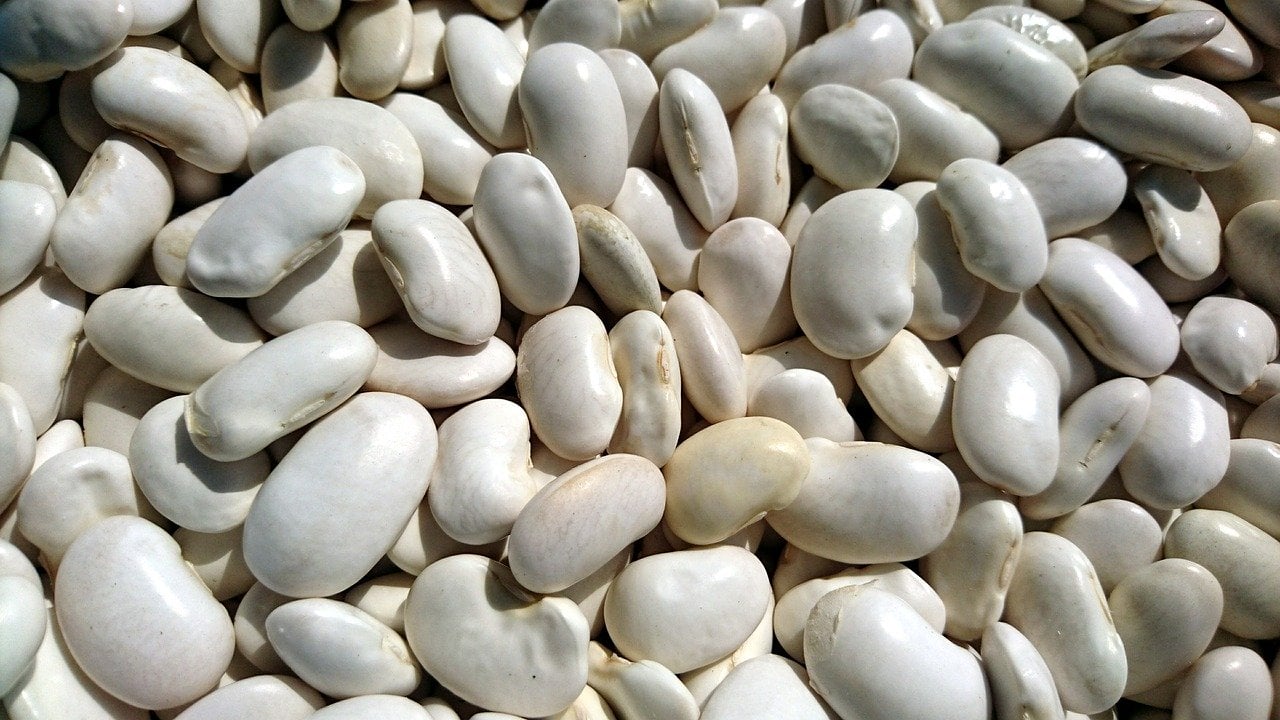Nootropics
Phosphatidylserine: The Ultimate Supplement Guide
In this Ultimate Supplement Guide, we summarize the scientific literature and provide everything you need to know about phosphatidylserine in foods and supplements, all in one place.
This article contains more than 20 citations from reputable medical websites and scientific studies. We dug through mountains of medical literature so you don’t have to.
If you have any questions, concerns, or even rebuttals, please contact us or leave a comment below. Don’t be a stranger.
Table of Contents
What is Phosphatidylserine and What are Phospholipids?

Phospholipids are fats that act as the building block of your body cell walls, help the cells maintain their structures and controls what goes in or out of the cell Phospholipids are found in every cell of your body and play a major role in growth and metabolism. The cells with the most phospholipids are your brain cells, specifically their cell walls (1).
Phospholipids vary in importance. Phosphatidylserine ranks near the top of the list of these fats. It protects the integrity of your brain cells and helps energy-producing nutrients enter them. It also helps your brain cells communicate with each other and boosts energy metabolism in your brain (1).
These functions make phosphatidylserine a very important fat for memory and other cognitive functions.
Your brain produces this substance naturally. Production declines as you age (2). Regardless of age, most of our phosphatidylserine comes from food. We all consume phosphatidylserine everyday, but unfortunately most of us are still short of it. Phosphatidylserine is available in a number of foods, including soy, white beans, egg yolks, chicken liver, and beef liver. Unfortunately, it’s difficult for our bodies to absorb sufficient amounts from dietary sources.
When food isn’t enough or we have a greater need for this vital substance, supplements are another option.
Phosphatidylserine supplements used to be made of cow brains, but now they’re made with soy lecithin and sometimes cabbage. Intelligent Labs makes its phosphatidylserine supplement with sunflower lecithin. These options make vegetarians and vegans happy. Cow brains are weird anyway.
What is Phosphatidylserine Used For?
Phosphatidylserine supplements are most commonly recommended* by doctors for treating: (3-18)
- Early stage Alzheimer’s Disease
- Cognitive decline
- Attention Deficit Hyperactivity Disorder (ADHD)
- Depression
- Physical stress & pain from exercise
- Multiple Sclerosis (MS)
Other common uses include enhancing cognitive and athletic performance (6,16).
We’ll dive into more details about the glories of this versatile fatty compound in the “What are the Benefits” section.
*(WebMd, Drugbank, RxList.)
How Do You Pronounce Phosphatidylserine?
Phos·pha·ti·dyl·Ser·ine
Do Vegetarians Need Phosphatidylserine Supplements?

There aren’t many plant sources with large quantities of it. According to Dr. Josh Axe’s website, low-fat and low-cholesterol diets don’t supply much phosphatidylserine. Neither does the average vegetarian diet. People used to get more of it from fats and oils, but modern production normally lowers the phosphatidylserine content. If you eat a lot of white beans, you may get plenty of it (19).
If you don’t want to eat white beans every day, then try a supplement.
What are the Best Food Sources?
Food sources with the highest amount of Phosphatidylserine Content in mg/100g: (19,20)
- Soy lecithin: 5,900 mg
- Cow brains: 713 mg
- Atlantic Mackerel: 480 mg
- Chicken hearts: 414 mg
- Atlantic Herring: 360 mg
- Eel: 335 mg
- Tuna: 194 mg
- Pig kidney: 218 mg
- Chicken legs with skin: 134 mg
- Chicken livers: 123 mg
- White beans: 107 mg
These are the top food sources, veal, beef, mullet, chicken breast, and soft-shell clams. All of these have less than 100mg per 100g. A lot of fish species – like cod, sardines, anchovies, and trout – contain very small amounts.

What are the Benefits of Phosphatidylserine?
Improves Memory & Cognitive Function
Phosphatidylserine is used in early Alzheimer’s cases to improve some symptoms. It’s less effective after symptoms become severe. Patients in the early stages who took a typical dosage of 300mg daily reduced some symptoms of the disease compared to a placebo group, although some cognitive test scores didn’t improve. The supplement was derived from cow brains. Overall, their quality of life improved a lot (21).
A 1993 study of 494 elderly patients with non-Alzheimer’s cognitive impairment demonstrated improvements in cognitive function and behavior compared to a placebo. They took 300mg per day of cow brain phosphatidylserine for six months (22).
A similar study in 2010 examined 78 elderly people with mild cognitive impairment, and this one also ran for six months. Their memories improved significantly in that period. They scored better on memory tests than the placebo people, who did not improve after the six months. The biggest improvements were under the umbrella of delayed verbal recall. The dosage was similar to the above studies, but the supplement came from soy lecithin (23).
How about healthy adults with no cognitive impairment?
18 men spanning the ages of 18 through 29 joined a study in 2011 for this purpose. It was a crossover study, which means they each took phosphatidylserine in one trial and a placebo in the other. They took 400mg of a soy formulation daily in a protein bar for 14 days. The placebo was the protein bar without the phosphatidylserine (7).
After the 14 days, they did lower-body resistance training. They were tested for changes in mood and cognitive ability (Serial Subtraction Test), and their blood was tested for changes in cortisol and testosterone. The tests were just before exercise, a few minutes after, and one hour after.
14 days of phosphatidylserine reduced errors in the Serial Subtraction Test (SST) by 39% and the time needed to make the calculations by 20%. In this type of test, you typically begin with a number like 100 and count down by repeatedly subtracting another number like 7. E.g. 100, 93, 86, 79, 72, etc.
The mood did not change between phosphatidylserine and the placebo. Neither did blood results.
In another study, phosphatidylserine supplementation was associated with feeling less stressed and having a better mood in young adults faced with an acute stressor, when taking of 300mg each day for a month (15).
Phosphatidylserine Alleviates ADHD Symptoms

A 2014 study of 36 children from 4 to 14 years old demonstrated significant improvements in a large range of ADHD symptoms after two months.
Results included improvement in short-term auditory memory, inattention, and impulsive behavior compared to a placebo that brought no improvement. The dosage was 200mg daily of soy-based phosphatidylserine (24).
Relieves Insomnia & Reduces Stress by Lowering Cortisol
Phosphatidylserine lowers cortisol, a major stress hormone, during physical and mental stress. The modern lifestyle in developed nations typically leads to high cortisol production and stress, and this contributes to insomnia.
A 2004 study examined 80 healthy adults who took varying dosages of a phosphatidylserine complex from plant sources for three weeks. Some took a placebo. After those three weeks, they were subjected to stress tests. Those who took 400mg daily had lower levels of cortisol and ACTH in the blood – and lower cortisol in the saliva – during stress tests compared to the placebo people. ACTH regulates cortisol and also triggers it. They were also less distressed by the stress tests and enjoyed better moods. Higher doses of 600mg and 800mg didn’t provide these benefits (25).
Most people who use phosphatidylserine take 300mg per day. This is typically enough to reduce stress. Customers regularly report lower stress and better sleep when using 100mg three times daily.
Insomnia is one of the initial symptoms of Parkinson’s Disease, and this is caused by phosphatidylserine depletion. Researchers in a 2018 study were able to restore normal sleep in animals with this problem (26).
May Reduce Depression Symptoms
A 12-week study in 2015, looked at the effects of not phosphatidylserine alone, but a supplement with that and omega-3. Patients were elderly and suffered from late life depression. The daily dosages were 300mg phosphatidylserine, 357mg of omega-3 in DHA form, and 210mg of omega-3 in EPA form. (13)
If you have read our Omega-3: The Ultimate Supplement Guide, you would know that high doses of DHA and EPA omega-3 (1,000mg to 6,000mg daily combined total) lower symptoms of numerous forms of depression. That’s true particularly when the EPA:DHA ratio is 60:40 or higher.
The above study used much smaller doses and combined that with a standard 300mg daily dose of phosphatidylserine. They found that phosphatidylserine and omega-3 fatty acids, may be effective for late life depression, associated with the correction of salivary cortisol levels.
In a 1990 study of 10 elderly women with depression, memory and depression symptoms improved after mere days compared to when they took a placebo. The dosage was 300mg daily of cow-derived phosphatidylserine. Researchers did not know whether improvements in memory lowered the depression, vice versa, or whether phosphatidylserine directly altered either or both (27).

Lowers Anxiety Levels
You may have read above that phosphatidylserine lowers stress by lowering cortisol, the stress hormone, and improving mood. It also lowers another stress hormone called corticotropic-releasing hormone (CRH). CRH is often a major convict in anxiety disorders, and elevated CRH sure does cause anxiety (28).
Related article: Can Phosphatidylserine Help With Sleep and Anxiety?
Improves Exercise Endurance
The first study that looked at phosphatidylserine’s effects on the stamina was in 2006. 14 cyclists took either 750mg of a plant-based supplement daily or a placebo for 10 days. The supplement significantly raised “exercise time to exhaustion (29).
Eases Athletic Recovery & Muscle Damage
These benefits may depend on the dosage, type of exercise, the intensity of exercise, duration of phosphatidylserine use, and other factors. Researchers often scratch their heads when trying to interpret the science on this matter.
St. Cloud University researchers found good results when studying trained runners who ran for 90 minutes. 12 people took either 300mg, 600mg, or a placebo and performed the run after 15 days of use. They reported reduced muscle damage after looking at chemical indicators of muscle damage (30).
However, a 2006 study of eight downhill runners measured chemical indicators of muscle damage, soreness, and oxidative stress. They also tested perceived muscle soreness. 750mg daily of phosphatidylserine for seven days before the intense running did not improve these measures compared to a placebo. They were tested before and after exercise and 24 and 48 hours later (30).
Some studies show that phosphatidylserine keeps cortisol from spiking during intense exercise. This could help both performance and recovery (30,31).
Do You Need to Take DHA Omega-3 with Phosphatidylserine?

Scientists in 2012 looked at the relationship between phosphatidylserine and essential fatty acids like omega-3’s DHA and EPA forms. They noted that proper levels of DHA in your brain are required for maintaining proper phosphatidylserine levels (32). Here’s an excerpt:
“… The membrane phosphatidylserine (PS) levels are dependent on the DHA status in neuronal cells. Neuronal membrane PS levels can be increased by DHA supplementation, whereas PS levels can be decreased in vivo by lowering DHA in neural tissues… DHA enrichment may represent a unique way of expanding the PS pool in mammalian membranes, although this phenomenon is limited to neuronal cells.”
A 2017 study by Purdue University published in the journal Nutrients found that 98% of Americans and Germans do not consume enough omega-3 to help prevent major health problems. A majority of that 98% who thought they got enough of it through diet actually did not (32).Intelligent Labs, recognizing the importance of essential fatty acids, developed a supplement called Ultra-Pure Omega-3. It is more potent than other supplements on the market. This is because common daily intake recommendations by governments are usually insufficient for reaping most of the scientifically proven rewards DHA and EPA have to offer. You can read about those in Omega-3: The Ultimate Supplement Guide.
What Should I Look for in a Phosphatidylserine Supplement?
Third-Party Lab Testing
Smart manufacturers hire independent and reputable third-party labs to inspect the product to ensure safety, quality, purity, and accurate labeling. Intelligent Labs is one of these manufacturers.
How do you know if a supplement is tested by a third-party lab? The lab provides a “certificate of analysis” for each product with full results. If you ask the manufacturer for one, they can send you a hard copy or PDF.
A Lack of Artificial Flavors, Preservatives, Colors & Binders
There is no need to pollute yourself with weird chemicals. Phosphatidylserine is safe and works just fine without these things.
Facilities are Good Manufacturing Processes (GMP) Certified
GMP is an international standard recognized by the U.S. Food and Drug Administration (FDA) and other government regulatory agencies.
Intelligent Labs’ Phosphatidylserine 100g supplement meets all of the above standards, and it’s GMO-free. Our supplement is made from sunflower lecithin instead of soy lecithin.
Are There Any Side Effects or Interactions I Should Know About?
The two side effects mentioned on the WebMD website are insomnia and stomach upset, particularly when doses are higher than 300mg. Normally, phosphatidylserine promotes sleep. Very few people experience the opposite. Stomach upset isn’t very common either.
There is not enough info to know whether it’s dangerous for pregnant or nursing mothers and their newborn or unborn children. Contact your doctor before adding a supplement to your routine.

When Should I Take Phosphatidylserine?
In almost every scientific study above, patients/volunteers took three doses per day. It’s good to spread out your doses as much as possible.
Because phosphatidylserine is a fat-soluble lipid, it is best to take it with food that contains fat to ensure higher absorption. If you eat three meals per day, take some with each meal.
What is the Proper Dosage for Adults & Children?
For most uses, 100mg three times daily is ideal. The scientific studies above typically followed this rule of thumb. Studies involving athletes tend to vary more on dosage. Those span from 300mg to 800mg, and they are usually split into three daily doses.
Some people with very high cortisol levels may need more than 300mg daily. Some may need up to 800mg.
Researchers in the ADHD study gave children 100mg doses twice daily. That seems like a good standard dose for children, regardless of whether they have ADHD.
How Long Does it Take for Phosphatidylserine to Work?
It depends on your goals. Many of the scientific studies above measured physical and mental performance, and other things, before and after a specific amount of weeks or months of supplementation. In some of them, researchers recorded positive effects in just a week or two. You might notice some results in days or weeks. Some benefits may increase from there, and some may not.
About This Ultimate Supplement Guide
Now, you know what phosphatidylserine is and what its benefits are, and you’ve seen some scientific research to back them up. It shows a lot of promise as a stress-reducer, a cognition-enhancer, an exercise endurance-booster, and excellent all-around brain food.
It could help your muscles recover from exercise, depending on a number of factors.Your doctor’s or healthcare provider’s advice is always more important than the info in this article. We do not provide substitutes for sound and personalized medical advice based on lab tests and appropriate diagnostic methods. Furthermore, a lot of complex illnesses mimic each other with similar symptoms, making self-diagnosis extremely difficult.
Phosphatidylserine is a nutrient. Phosphatidylserine supplements are not intended to treat, cure, or prevent any particular disease.
References
- Alagumuthu, M., Dahiya, D. and Singh Nigam, P. (2019). Phospholipid—the dynamic structure between living and non-living world; a much obligatory supramolecule for present and future. AIMS Molecular Science, 6(1), pp.1-19.
- Suleimanova RR, Hudz EA, Melnychuk DO, Kalachniuk LH(2017) Age-related changes phospholipids of sterlet in liver and dorsal muscles. Ukr Biochem J 89:71–75.
- Kim, B., Park, S. Phosphatidylserine modulates response to oxidative stress through hormesis and increases lifespan via DAF-16 in Caenorhabditis elegans. Biogerontology (2020).
- Liguori, I., Russo, G., Curcio, F., Bulli, G., Aran, L., Della-Morte, D., Gargiulo, G., Testa, G., Cacciatore, F., Bonaduce, D., & Abete, P. (2018). Oxidative stress, aging, and diseases. Clinical interventions in aging, 13, 757–772.
- H Van Remmen, Oxidative Stress And Age-related Diseases, Innovation In Aging, Volume 2, Issue Suppl_1, 1 November 2018, Page 347.
- Michael J. Glade Ph.D., Kyl Smith D.C., Phosphatidylserine and the human brain, Nutrition 31 (2015) 781–786.
- Parker AG1, Gordon J, Thornton A, Byars A, Lubker J, Bartlett M, Byrd M, Oliver J, Simbo S, Rasmussen C, Greenwood M, Kreider RB, The effects of IQ PLUS Focus on cognitive function, mood and endocrine response before and following acute exercise, J Int Soc Sports Nutr. 2011 Oct 21;8:16.
- Kidd, Parris. (1996). Phosphatidylserine; Membrane Nutrient for Memory. A Clinical and Mechanistic Assessment. Altern. Med. Rev.
- Caffara P, Santamaria V. The effects of phosphatidylserine in patients with mild cognitive decline. An open trial. Clin Trials J 1987;24:109–14
- Schreiber S, Kampf-Sherf O, Gorfine M, Kelly D, Oppenheim Y, Lerer B. An open trial of plant-source derived phosphatidylserine for treatment of age-related cognitive decline. Isr J Psychiatry Relat Sci 2000;37:302–7.
- Richter Y, Herzog Y, Cohen T, Steinhart Y. The effect of phosphatidylserine containing omega-3 fatty acids on memory abilities in subjects with subjective memory complaints: a pilot study. Clin Interv Aging 2010;5: 313–6
- Richter Y, Herzog Y, Lifshitz Y, Hayun R, Zchut S. The effect of soybean derived phosphatidylserine on cognitive performance in elderly with subjective memory complaints: a pilot study. Clin Interv Aging 2013;8: 557–63
- Komori T. The Effects of Phosphatidylserine and Omega-3 Fatty Acid-Containing Supplement on Late Life Depression. Ment Illn 2015;7:5647.
- Pistollato, F., Sumalla Cano, S., Elio, I., Masias Vergara, M., Giampieri, F., & Battino, M. (2016). Associations between Sleep, Cortisol Regulation, and Diet: Possible Implications for the Risk of Alzheimer Disease. Advances in nutrition (Bethesda, Md.), 7(4), 679–689.
- Benton D, Donohoe RT, Sillance B, Nabb S: The Influence of phosphatidylserine supplementation on mood and heart rate when faced with an acute stressor. Nutr Neurosci. 2001, 4 (3): 169-178.
- Starks, M.A., Starks, S.L., Kingsley, M. et al. The effects of phosphatidylserine on endocrine response to moderate intensity exercise. J Int Soc Sports Nutr 5, 11 (2008).
- Hellhammer, J., Vogt, D., Franz, N., Freitas, U., & Rutenberg, D. (2014). A soy-based phosphatidylserine/ phosphatidic acid complex (PAS) normalizes the stress reactivity of hypothalamus-pituitary-adrenal-axis in chronically stressed male subjects: a randomized, placebo-controlled study. Lipids in health and disease, 13, 121.
- Hirayama S, Terasawa K, Rabeler R, Hirayama T, Inoue T, Tatsumi Y, Purpura M, Jäger R, The effect of phosphatidylserine administration on memory and symptoms of attention-deficit hyperactivity disorder: a randomised, double-blind, placebo-controlled clinical trial, J Hum Nutr Diet. 2014 Apr;27 Suppl 2:284-91.
- Axe.Phosphatidylserine, What Is Phosphatidylserine? (Top 6 Benefits & How to Use It), September 27, 2019.
- Souci SW, Fachmann E, Kraut H. (Book). Food Composition and Nutrition Tables. Medpharm Scientific Publishers Stuttgart. (2008).
- Engel RR, Satzger W, Günther W, et al. Double-blind cross-over study of phosphatidylserine vs. placebo in patients with early dementia of the Alzheimer type. Eur Neuropsychopharmacol. 1992; 2(2): 149-55.
- Cenacchi T, Bertoldin T, Farina C, Fiori MG, Crepaldi G. Cognitive decline in the elderly: a double-blind, placebo-controlled multicenter study on efficacy of phosphatidylserine administration. Aging (Milano). 1993; 5(2): 123-33.
- Kato-Kataoka A, Sakai M, Ebina R, Nonaka C, Asano T, Miyamori T. Soybean-Derived Phosphatidylserine Improves Memory Function of the Elderly Japanese Subjects with Memory Complaints J. Clin. Biochem. Nutr.. 2010; 47(3): 246-255.
- Hirayama S, Terasawa K, Rabeler R, et al. The effect of phosphatidylserine administration on memory and symptoms of attention-deficit hyperactivity disorder: a randomised, double-blind, placebo-controlled clinical trial. J Hum Nutr Diet. 2014; 27 Suppl 2: 284-91.
- Hellhammer J, Fries E, Buss C, et al. Effects of soy lecithin phosphatidic acid and phosphatidylserine complex (PAS) on the endocrine and psychological responses to mental stress. Stress. 2004; 7(2): 119-26.
- Valadas JS, Esposito G, Vandekerkhove D, et al. ER Lipid Defects in Neuropeptidergic Neurons Impair Sleep Patterns in Parkinson’s Disease. Neuron. 2018; 98(6): 1155-1169.e6.
- Maggioni M, Picotti GB, Bondiolotti GP, et al. Effects of phosphatidylserine therapy in geriatric patients with depressive disorders. Acta Psychiatr Scand. 1990; 81(3): 265-70.
- Lise A. Treatment Considerations for Generalized Anxiety Disorder. Natural Medicine Journal. 2014; 6(4).
- Kingsley MI, Miller M, Kilduff LP, McEneny J, Benton D. Effects of phosphatidylserine on exercise capacity during cycling in active males. Med Sci Sports Exerc. 2006; 38(1): 64-71.
- Kingsley MI, Kilduff LP, McEneny J, Dietzig RE, Benton D. Phosphatidylserine supplementation and recovery following downhill running. Med Sci Sports Exerc. 2006; 38(9): 1617-25.
- Monteleone P, Beinat L, Tanzillo C, Maj M, Kemali D. Effects of phosphatidylserine on the neuroendocrine response to physical stress in humans. Neuroendocrinology. 1990; 52(3): 243-8.
- Monteleone P, Maj M, Beinat L, Natale M, Kemali D. Blunting by chronic phosphatidylserine administration of the stress-induced activation of the hypothalamo-pituitary-adrenal axis in healthy men. Eur J Clin Pharmacol. 1992; 42(4): 385-8.





